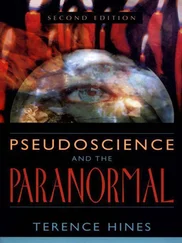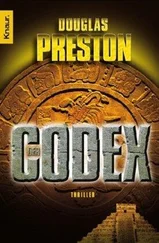“You do know what you’re doing, eh?” asked Helen.
I gnawed my lower lip. “Farther than that.”
Unlike the lifeless screen of an e-reader, the pages of Asimov’s story welcomed me. From the opening paragraphs, I could hear Arnold Potterley’s quiet desperation as he petitioned for permission to use chronoscopy. I felt the resigned bitterness of the man forced to refuse that petition. I flipped ahead, imagining the excitement and anticipation of a working chronoscope—anticipation shared by countless readers over time.
My fingers sank through the page, sending a thrill through my body. I had performed this same act hundreds of times over the years, and there were days I still fought to keep from giggling like a kid on Christmas morning. No matter what happened, no matter what monsters tried to eat my flesh or steal my thoughts, I could do magic .
I saw the chronoscope in my mind, a template created by the imagination and belief of the readers. Normally, the next step would be to use that template to transform the magical energy into solid form and pull it free.
The hard part was not doing so. All my training urged me to create, to grasp the chronoscope from Asimov’s world, even though I could never bring it into our own.
In magical terms, I was manipulating a semi-collapsed matrix of potential energy through an open portal maintained by my own belief and will. Practically speaking, it was like carrying a Labrador retriever over a tightrope and having a squirrel race past.
I pulled my hand free while trying to draw that partially formed energy into our world. My connection to the text wiggled away like a fish diving back into the pages. I rubbed my eyes and concentrated on slowing my breathing before trying again.
“This would be easier if the book wasn’t forty years old,” I muttered. Belief didn’t last forever, though it was impossible to calculate the exact rate of decay.
“Why not use a newer one?” asked Helen.
“Because Gutenberg magically locks pretty much everything to do with time travel or spying on the past. Partly because the amount of magical energy it would take to actually travel in time would probably burn you to a crisp, and even if through some miracle you survived, there’s too much risk of accidentally stepping on the wrong butterfly and destroying all of humanity.”
“What’s the harm in just looking?” asked Lena.
“If I had to guess, I’d say Gutenberg doesn’t want anyone prying into his past.” I tapped the book. “Asimov’s chronoscope has a limited range. If you try to look more than a hundred and twenty years in the past, you get interference, meaning Gutenberg’s early days are safely out of reach.” I wiped my hand on my shirt and tried again to touch the book’s magic.
“Relax,” said Lena. “I might not know as much about libriomancy as you do, but I’ve seen you do magic, and you don’t normally look like a constipated librarian trying to pass a hardcover.”
I made an obscene gesture in her direction.
“Maybe later,” she shot back.
I snorted, but the exchange did help me to relax. I tried again, allowing my eyes to unfocus until the text became a blur of ink on the page. I reread the story in my mind, concentrating not on the specific details, but the emotion, the excitement and wonder, the possibilities blossoming from Asimov’s story.
With this book, you could watch the truth about the JFK assassination or see what really happened right before the Berlin Wall came down. Or if you preferred, you could just hunker down on your couch beneath the blankets and watch the lost episodes of Doctor Who when they first aired.
More than a century of history at your fingertips. The technology could be abused, as the ending demonstrated, but that was true for most technology, magic or not. And there was so much we could learn.
“Isaac,” Lena whispered.
When I blinked, static fizzed across my vision. It vanished before I could focus. “Did you see that?”
“Only for a second or two,” said Nidhi.
I almost had it. I reached deeper into the book until my arm appeared to end just below the elbow. I could feel the fuzz of static electricity, like I was touching an old glass television screen. I imagined the room beyond, the cobbled-together chronoscope of the story flickering to life. The chronoscope was too big for me to bring through, but the images it displayed were nothing but light. I used my other hand to raise the book, and concentrated on pushing those images out into the world.
Helen jumped back as the air between us flickered gray. A rectangular space the size of a suitcase gradually settled into focus, showing a grainy picture of the trees beyond.
Manic laughter was generally considered undignified, but when I tried to swallow my triumphant glee, the noise that came out was more like a coughing hiccup. So much for dignity.
“This will show us what happened?” asked Helen.
“Exactly! It will—um.” Oh, right. I had created the effect, but I hadn’t made any of the controls. I tried to will the spell to move backward in time, to show me what had happened roughly eight hours ago. My efforts had absolutely no effect.
Nidhi walked toward me and gently grasped my wrist. “Your respiration and pulse are both too high,” she warned. “Don’t take too long.”
“Got it. Could someone take Smudge?”
Lena gently lifted the spider from my shoulder. I walked toward the vision, half-expecting it to pop like a soap bubble. Instead, images flashed before me. An array of vacuum tubes. A bronze statue of the god Moloch, a furnace glowing in his belly. A child trapped in a house fire.
Grief flowed through the book, so intense it knocked me back a step. Had you asked me in that moment, I would have sworn it was my own child dying in the flames.
“Why is it showing a fire?” Helen asked. “Nothing burned here.”
“The magic is ‘tuned’ to the story. It’s showing us the past, but it’s the fictional past Asimov created.” I needed to refocus the spell to this world, and I needed to do it quickly, before the story moved into my thoughts and made itself at home.
“There are other ways to find whoever did this,” Nidhi said.
“Just give me a minute.” This was a known problem, one that arose with crystal balls, magic mirrors, and other scrying techniques. Time after time, they worked exactly as they had been written: showing images from the fictional world they had come from. Reorienting those toys to the real world was all but impossible.
Or so I had been taught. In the past months, I had jotted down three theories on how to bypass that particular rule. A strong enough libriomancer could break past the confines set by the book, but someone strong enough to do that shouldn’t need books to do magic in the first place.
Locking the book should also sever the connection between the book and the created object, giving me a better chance of refocusing the chronoscope to find our killer. Which would have been perfect, if I had the slightest clue how Gutenberg locked his books.
Time to test theory number three. I handed the book to Nidhi. “There’s a lead-lined bag of flower petals in my satchel. Could you please rub the petals over the book and press them between the pages, especially this page?”
Lena looked over Nidhi’s shoulder. “When did you take up flower power?”
“I’ve been experimenting with ways of preserving Moly.” The flower came from Odysseus , and could be used to nullify magic. I had requested a specially enchanted bag just so I would be able to carry the petals around without canceling out every spell in a five-foot radius. The one time I got careless, Smudge had lost his flame for a day and a half. When he finally recovered, he set my favorite T-shirt on fire. I couldn’t prove it, but I was certain he had done it deliberately.
Читать дальше












